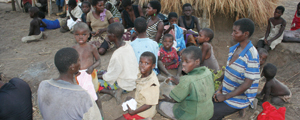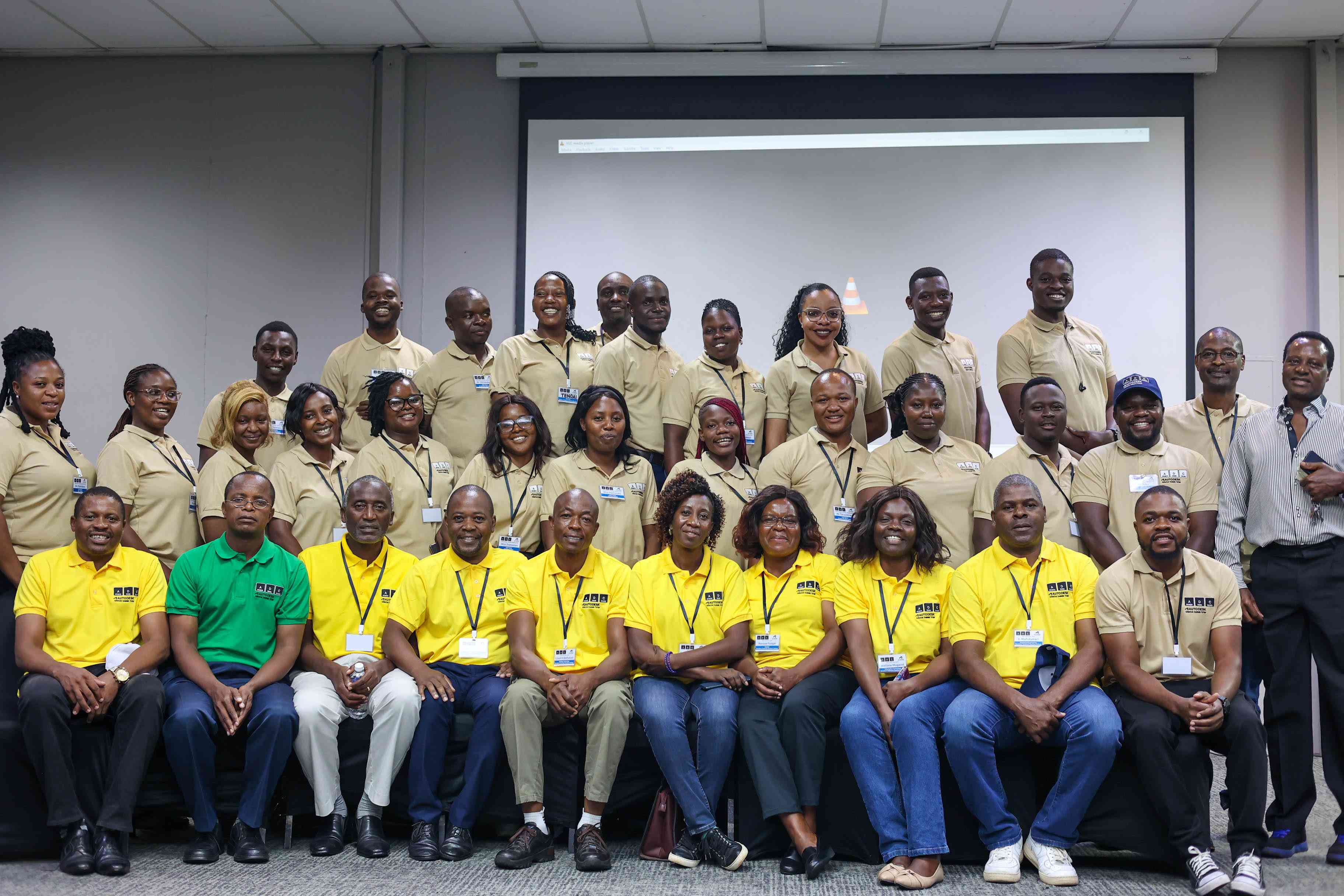
They are thrilled at the strategic manoeuvres of a pride of lions in their hunt for prey, they chuckle over the antics of meerkats in their nervous scurrying and wonder at the stamina of a wildebeest calf which must be ready to flee predators minutes after birth.
Gibson Nyikadzino
Faraway from the racket of technology, the commotion of commuter omnibuses and the ruckus of contending voices of Harare’s street vendors lies a village sitting on the country’s northernmost point.
The rushing winds blow the sand, break twigs and fly dead tree leaves, what remains will have to stand the test of the sweltering heat. Every season has its case.
December brings her own, dark clouds accompanied by clapping thunder and lightning announce the benevolent gift of the skies, a gift often met with great jubilations in other parts of the country, but not quite in this village. Mother Earth nonetheless opens her bowels and generously nourishes the tree and the weed. On the banks of the Mwanzamutanda River, a flight of butterflies scatters the river bank.
Welcome to Kanyemba. Historical land of the Doma people, but also home to the Chikunda. Tradition has it that the Chikunda came into Kanyemba from neighbouring Mozambique and the Doma people who already settled there being secretive and unwelcoming as they are, declared war, but lost the ensuing battle. The Doma then nicknamed the new arrivals, the Chikunda, a name that communicates an aspect of overcoming (kunda).
The Doma themselves have legends of their forerunners having originated from a baobab tree and then, descending from it, walked upright to hunt and gather the fruits of the land. It is arresting to note how the later part of the tale is so close to Darwin’s teachings on the origin of mankind through the theory evolution.
Meanwhile, the Doma people have a close bond to the forest, they argue that the jungle is “selfless” since time immemorial the jungle has nourished the tree and the weed, the birds and the ruminant and mankind also had his place in the matrix. For many years the Doma people have been given to a life of hunting and gathering. This secretive tribe is hostile to change and outside influence.
- Chamisa under fire over US$120K donation
- Mavhunga puts DeMbare into Chibuku quarterfinals
- Pension funds bet on Cabora Bassa oilfields
- Councils defy govt fire tender directive
Keep Reading
Despite the presence of neighbouring Chapoto primary and secondary schools, the Doma children do not wake up to take a bath and run to school. Even the neighbouring Chapoto Clinic is of no strong significance in times of illness for the Doma trust in their ways.
One thing which has remained deeply ingrained, but circumstances are forcing them is accept is the cession of the hunter gathering lifestyle.
The Doma people’s future is bleak. Austere hunger and starvation is ever present. The irony is that they exist on a land that can be productive if put to good use with the right skills and equipment. Unfortunately, their lack of skill means they must work in other people’s fields.
The elderly can wear clothes until they are worn out as the group cannot afford buying soap and other toiletries to freshen themselves.
The Seventh-Day Adventist Church has made the little civilised community see the light at the end of the tunnel as they have managed to construct a school for the Doma.
The church’s director of education in the East Zimbabwe Conference Pastor Phinias Motsi revealed that the church, along with government help, has built two classroom blocks, bought 40 desks and 80 chairs for those who would want to enrol once the building structure is commissioned by the government.
Motsi said as a church, they have hope that the school (Mariga Primary) will survive the hard times, painting a hopeful scenario despite the fact the Doma people are illiterate.
“We have an obligation to relieve people from suffering and redeem them from ignorance. To us as a church schools will remain viable as long there are people. We have not seen schools dying. Even those that were established by the missionaries in the 19th century are still around, unless here have been settlement changes,” said Pastor Motsi as he paused involuntarily.
According to the church, government donated $25 000 and other materials for the school to be built. The school is not yet operational as there are some final touches that are be aligned before commissioning.
There are no staff quarters and toilets are under construction.
The Doma rely heavily on hand outs from well-wishers, however it seems the issue of hand outs is going to be a thing of the past as there are plans to turn Kanyemba into an organised settlement.
Ward One councillor for Chapoto, Xmas Kachasu, said the school that has been built is a relief for the Doma people as some are contemplating building permanent houses and desist living as nomads.
“People are happy because of what has been done. Imagine for the first time the Doma people have a school built in their area and both the young and old are eager to make a step and deliver themselves from ignorance.
There are also plans to build permanent structures so that there is a clear designation of the settlements. With time there are going to be clean water sources and people will also earn proper farming methods,” said the councillor.
With little knowledge, saturated with ignorance and thoughts that are not in tandem with the goings on in the country, the schools might serve as a gateway to enlightenment for the Doma who have lived much of their time in the periphery of significant development.
Another organisation, Operation Mobilisation, is making strides in penetrating the life of the Doma in all simplicity as they are sourcing audio Bibles for the Kanyemba community.
“We have realised that the Doma are illiterate, so the only way is for them to have audio bibles so that they can hear the word of God,” said Simon Marijani, the co-ordinator for the Audio Bibles Programme.












